
When it comes to evaluating cognitive abilities, many people turn to various assessments to gauge their reasoning, problem-solving, and analytical skills. These evaluations are designed to measure mental capabilities across a wide range of tasks. From recognizing patterns to solving complex equations, the questions often reflect a person’s ability to process and use information effectively. However, understanding how to approach these challenges and interpret the results is key to making sense of what such evaluations truly reveal about an individual’s cognitive strengths and weaknesses.
Interpreting the outcomes can be a complex task, as it involves more than just looking at the final score. Each section or challenge within the evaluation provides insight into different aspects of mental agility. The way you approach and respond to each prompt reflects various intellectual attributes, such as memory, logic, and spatial awareness. Understanding these components is essential for a comprehensive view of your cognitive profile.
Whether you’re preparing for an assessment or reflecting on your performance, it’s important to consider how each section is structured and what it aims to measure. By gaining clarity on this process, you can better understand your results and identify areas for improvement. This knowledge helps turn abstract numbers into actionable insights that can benefit both personal and professional growth.
Understanding IQ Scoring System
The process of assessing cognitive abilities involves more than simply assigning a number to one’s intellectual capacity. Scores are derived from a series of responses to specific challenges, each contributing to a larger picture of mental performance. The numerical result you receive is a reflection of how well you performed relative to others within the same age group, based on a series of cognitive tasks designed to measure different aspects of mental agility.
The score typically follows a standardized system where the average is set at 100. A score of 100 indicates that your intellectual capabilities are in line with the average person in your age group. Scores above or below this value reflect either a higher or lower cognitive performance compared to the general population. This distribution allows for a comparison of mental abilities across a wide range of individuals.
The range of scores provides further insight into how cognitive abilities vary among individuals. A score above 130 is generally considered above average, while a score below 70 may suggest challenges in certain cognitive areas. However, it’s important to note that these numbers represent statistical estimates and should not be viewed as definitive measures of one’s overall intelligence or potential. Factors such as environment, education, and experience can also influence cognitive performance.
How IQ Assessments Measure Intelligence
Evaluations designed to assess intellectual abilities focus on a variety of mental tasks that test an individual’s capacity to reason, solve problems, and think critically. These tasks are created to measure different cognitive functions, such as logical reasoning, memory, pattern recognition, and spatial awareness. By presenting a series of challenges, these assessments aim to gauge how well an individual can process information and apply knowledge in various contexts.
The way intelligence is measured goes beyond simple knowledge recall. It involves how quickly and accurately a person can understand complex ideas, make connections between different pieces of information, and apply learned concepts to new situations. For example, puzzles that require identifying patterns or solving abstract problems help assess cognitive flexibility, while numerical sequences test mathematical reasoning and analytical thinking.
Moreover, the range of tasks is carefully structured to ensure that the assessment captures a wide spectrum of intellectual capabilities. Tasks can include verbal reasoning, spatial problem solving, and logical sequences, each targeting a specific area of mental ability. By combining these different types of challenges, the overall result offers a more comprehensive view of a person’s cognitive strengths and weaknesses.
Common Types of IQ Test Questions
In cognitive evaluations, different question types are designed to assess a variety of mental abilities. These challenges target skills such as pattern recognition, logical reasoning, and verbal comprehension. The questions are structured to reveal how well a person can think critically, solve problems, and use reasoning to draw conclusions.
Pattern Recognition and Logical Sequences
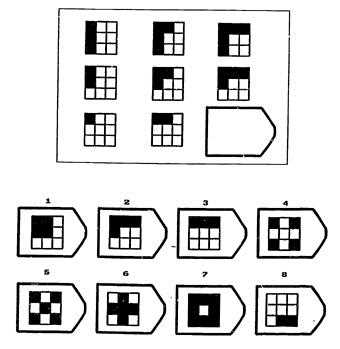
One common question type involves identifying patterns within a series of shapes or numbers. Participants are required to determine the logical relationship between different elements and predict the next item in the sequence. This tests a person’s ability to think abstractly and recognize underlying rules in complex information.
Verbal and Mathematical Reasoning
Verbal reasoning questions assess language comprehension and the ability to reason using words. These might involve analogies, sentence completion, or understanding word relationships. Similarly, mathematical reasoning questions test numerical skills and the ability to solve problems involving numbers, sequences, and equations.
Interpreting Patterns and Sequences
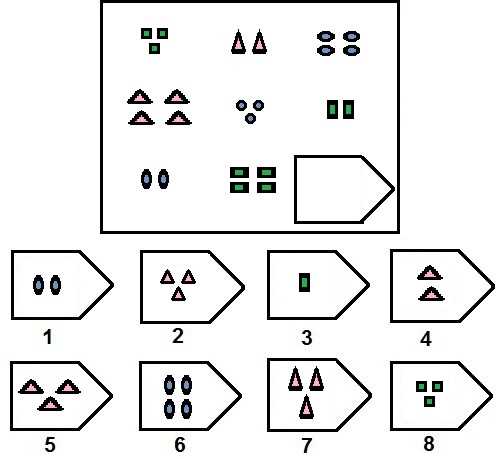
Recognizing patterns and understanding sequences are essential cognitive skills that help in solving complex problems. In these types of challenges, individuals are asked to identify a logical progression or recurring structure among a series of elements. The ability to see how parts fit together, predict the next item in a sequence, and understand the underlying rules is a key aspect of intellectual ability.
Identifying Regularities in Visual Patterns
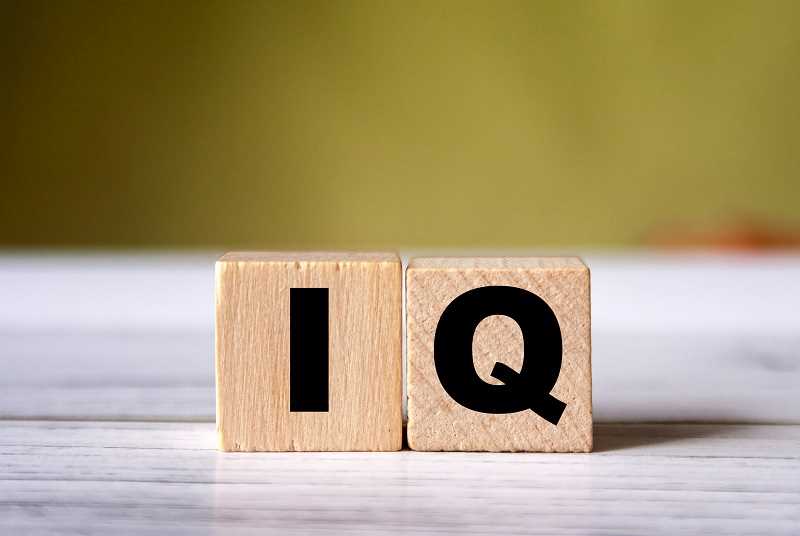
One of the most common forms of pattern recognition involves visual sequences, where participants must identify shapes, colors, or symbols that follow a particular order. The challenge lies in recognizing the relationship between the items presented and predicting what comes next. This tests spatial reasoning and the ability to process visual information quickly and accurately.
Mathematical Sequences and Progressions
Mathematical sequences often involve numbers that follow a certain rule, such as adding or subtracting a fixed value. These types of questions require logical thinking and an understanding of numeric patterns, whether simple arithmetic or more complex mathematical relationships. The ability to detect these progressions is an important aspect of numerical reasoning.
Verbal Reasoning in IQ Assessments
Verbal reasoning challenges evaluate an individual’s ability to understand and analyze language-based information. These tasks typically require you to process written material, identify relationships between words, and apply logic to draw conclusions. The focus is on how well a person can interpret verbal cues, make inferences, and use their vocabulary to solve problems.
Common question types in this category include word analogies, sentence completion, and the identification of relationships between words. Participants are asked to find connections between seemingly unrelated concepts, use context to fill in missing information, and deduce meanings based on clues provided in the language. Strong verbal reasoning skills are a sign of advanced cognitive flexibility and linguistic comprehension.
Mathematical Problem Solving in Assessments
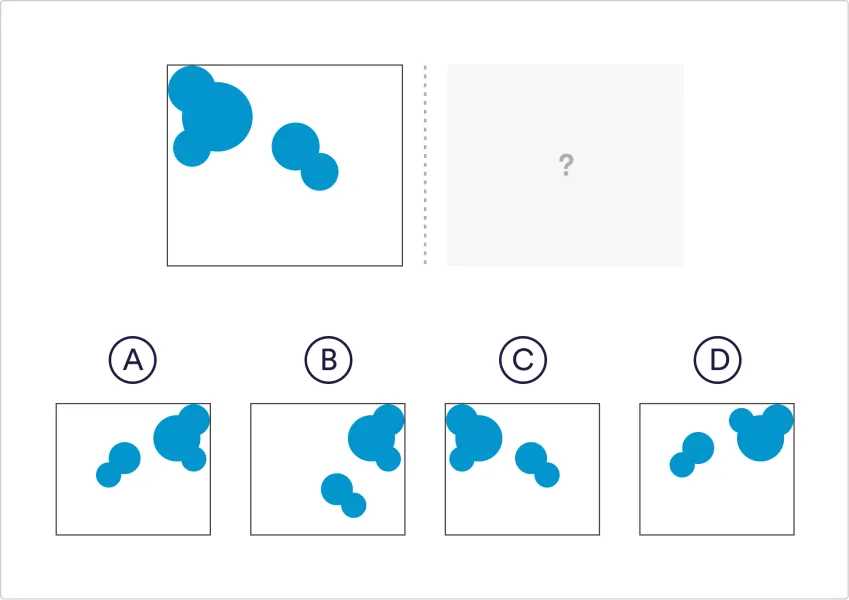
Mathematical problem-solving challenges evaluate an individual’s ability to reason through numerical and quantitative tasks. These questions require logical thinking, numerical fluency, and the ability to apply mathematical concepts to solve complex problems. The focus is on how effectively a person can manipulate numbers, identify patterns, and make precise calculations under time constraints.
Common types of mathematical challenges include:
- Arithmetic problems: These involve basic operations like addition, subtraction, multiplication, and division.
- Word problems: These require translating a real-world scenario into a mathematical equation and solving it.
- Number sequences: Participants must identify the rule behind a sequence of numbers and predict the next values.
- Geometry-related problems: These tasks involve understanding shapes, areas, and spatial relationships.
These questions not only test your ability to perform calculations but also measure how well you can think critically and apply learned mathematical principles to unfamiliar situations. Developing strong problem-solving skills in mathematics is an essential part of overall cognitive functioning and intellectual flexibility.
The Role of Logic in IQ Assessments
Logical reasoning plays a central role in many cognitive evaluations, as it reflects an individual’s ability to think systematically and draw conclusions based on structured information. Tasks that assess logical reasoning often require recognizing patterns, making deductions, and applying rules to solve problems. The ability to reason logically is essential for understanding complex relationships and making informed decisions, both in abstract scenarios and in real-world situations.
Types of Logical Challenges
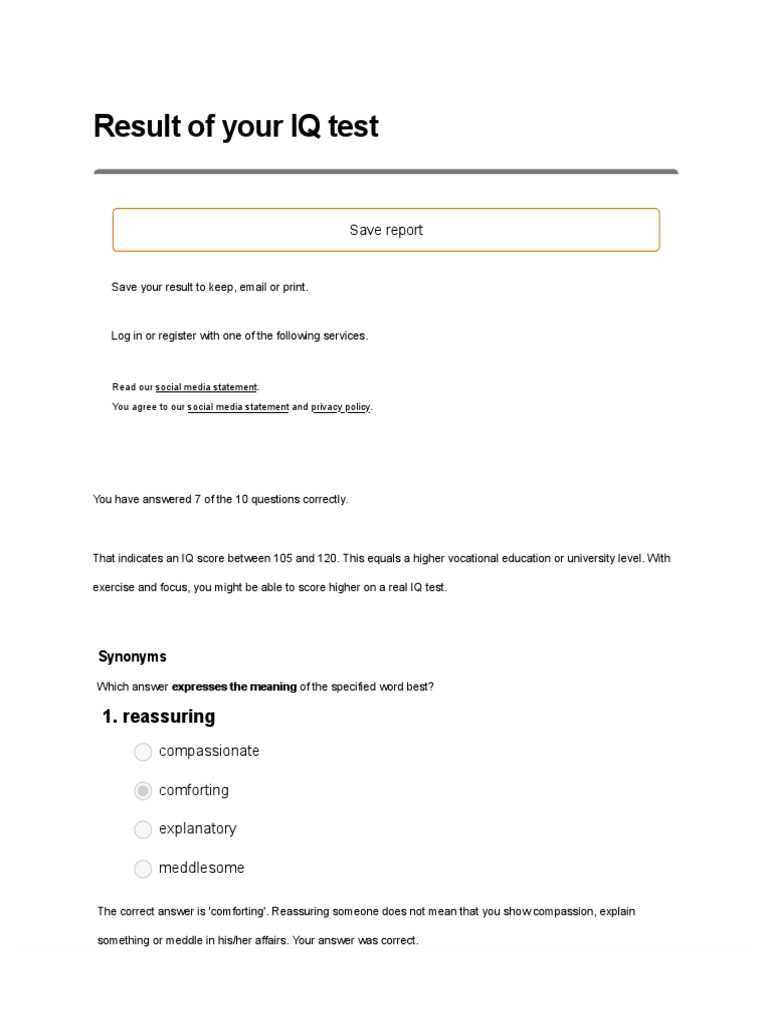
Logical reasoning questions typically fall into several categories, each testing different aspects of deductive and inductive reasoning:
- Pattern recognition: Identifying relationships between elements and predicting the next in a sequence.
- Syllogisms: Drawing conclusions from given premises, testing deductive reasoning skills.
- Conditional reasoning: Understanding if-then statements and determining outcomes based on certain conditions.
- Abstract logic: Solving problems that require recognizing abstract concepts and making connections between them.
The Importance of Logic in Cognitive Abilities
Logical reasoning not only assesses cognitive agility but also tests how well a person can adapt to new information, solve unfamiliar problems, and organize their thoughts coherently. Strength in logic often correlates with higher problem-solving abilities, making it a key area in evaluating intellectual potential.
Time Constraints and Performance Impact

Time limits are often a significant factor in cognitive evaluations, as they can influence how individuals approach problems and manage their mental resources. The pressure to complete tasks within a set period can affect decision-making, accuracy, and the ability to think clearly. When faced with time constraints, individuals may need to balance speed with careful reasoning, which can impact the quality of their performance.
Several ways in which time limits influence performance include:
- Increased pressure: Time restrictions often heighten stress, which may lead to rushed decisions or mistakes that wouldn’t occur in a less time-sensitive environment.
- Faster decision-making: While some individuals may perform better under time constraints, others might struggle to make thoughtful choices quickly, affecting their results.
- Prioritization of easier tasks: With limited time, people may opt for simpler problems they can solve quickly, potentially avoiding more challenging ones they might be able to solve with more time.
- Impact on accuracy: Rushed thinking can lead to less accurate responses, as individuals may skip important steps in the problem-solving process.
Understanding how time limits affect cognitive performance can provide valuable insight into how individuals handle pressure and manage tasks under stress. These factors can reveal not only cognitive abilities but also emotional and mental endurance, which are important aspects of overall problem-solving efficiency.
Factors That Affect IQ Test Results
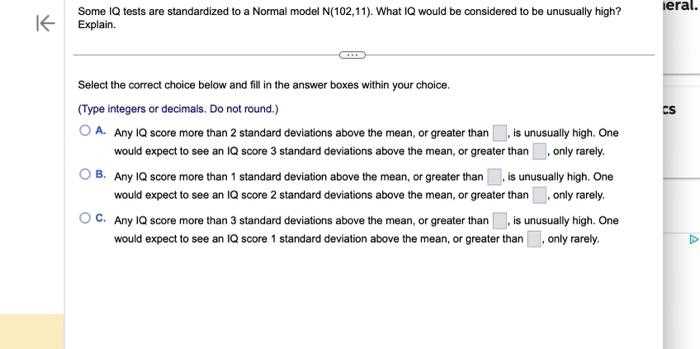
The results of cognitive assessments can be influenced by a variety of internal and external factors. These factors can affect how well an individual performs on different tasks, impacting their overall score. It is important to understand that cognitive ability is not solely determined by the outcome of such evaluations, as various elements can influence performance on the day of the assessment.
Some key factors that may impact the outcome include:
- Test-taking environment: Noise, lighting, or other distractions can significantly affect concentration and performance during the evaluation.
- Emotional state: Stress, anxiety, or a lack of confidence can interfere with a person’s ability to think clearly and solve problems effectively.
- Physical condition: Fatigue, hunger, or illness may hinder cognitive function and decision-making abilities.
- Familiarity with the format: People who are more accustomed to the style of tasks or the structure of the evaluation may perform better than those who are less familiar.
- Socioeconomic factors: Access to education, resources, and stimulating environments can influence cognitive development and problem-solving abilities.
Understanding these influencing factors helps to provide a more holistic view of a person’s cognitive abilities. While evaluations can offer useful insights, it is essential to consider the broader context in which they are conducted.
Why Accuracy Matters in Responses
In any intellectual evaluation, the precision of your responses is crucial as it reflects the depth of understanding and reasoning skills. Providing accurate solutions not only shows your ability to solve problems correctly but also demonstrates attention to detail and careful consideration of the information presented. Inaccurate or rushed responses can significantly affect the assessment of your cognitive abilities, even if the underlying knowledge is sound.
Impact on Cognitive Evaluation
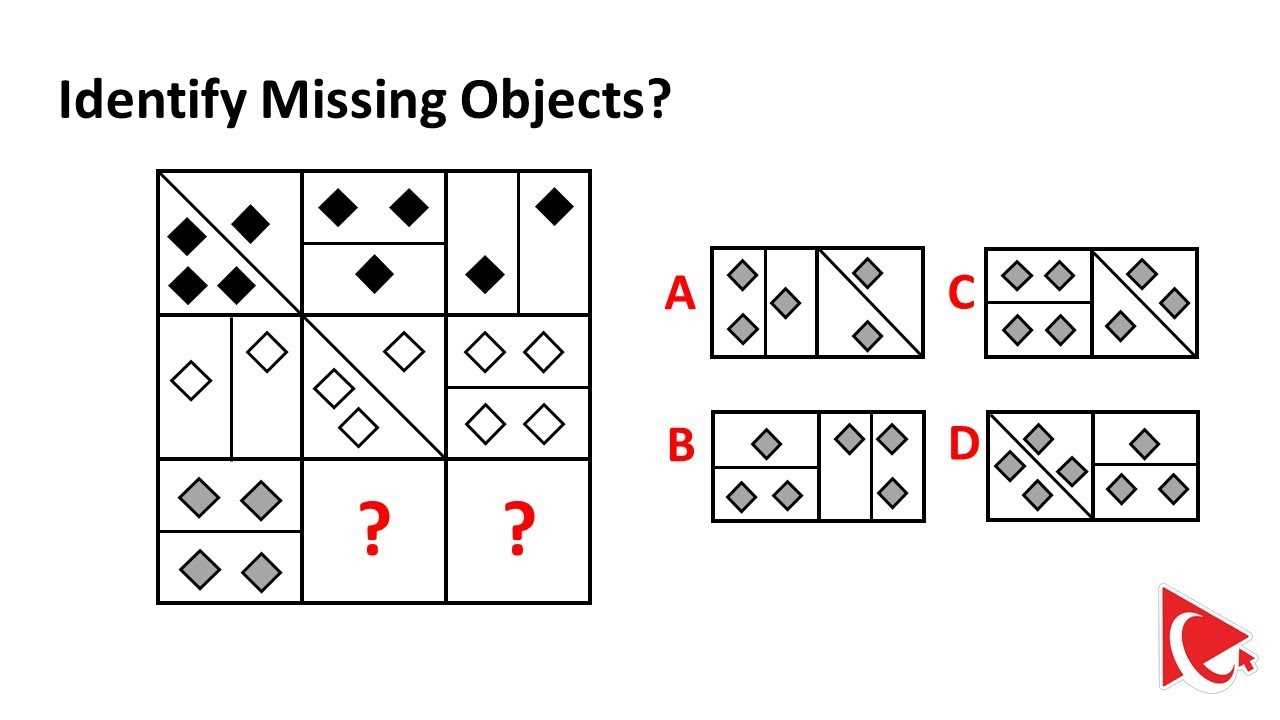
Accuracy plays a key role in assessing how well an individual can process information and apply logical thinking. Mistakes, even if minor, can suggest that a person may not fully understand the concepts at hand or that they are rushing through tasks without careful analysis. This highlights the importance of balancing speed with careful thought.
Consequences of Inaccurate Responses
Inaccurate responses can skew results, leading to misinterpretations of one’s abilities. While minor errors might not drastically alter the outcome, consistently incorrect answers can suggest a lack of mastery in certain areas. Therefore, striving for accuracy is not only about getting the right answer but also demonstrating the capacity for effective problem-solving and critical thinking under pressure.
Decoding Your IQ Score Range
Understanding the meaning behind your cognitive evaluation score can provide valuable insight into your intellectual strengths and areas for improvement. While the score itself is just one piece of the puzzle, interpreting its range can offer a clearer picture of your overall cognitive capabilities. The scores are typically classified into different ranges, each representing specific levels of cognitive functioning.
Here is a breakdown of common IQ score ranges and their general interpretations:
| Score Range | Interpretation |
|---|---|
| 130 and above | Very high intelligence; above average reasoning and problem-solving abilities. |
| 120 – 129 | High intelligence; strong analytical skills and complex thought processing. |
| 110 – 119 | Above average intelligence; capable of handling most cognitive challenges with ease. |
| 90 – 109 | Average intelligence; able to perform well in typical problem-solving situations. |
| 80 – 89 | Below average intelligence; struggles with more complex tasks, but performs adequately in routine situations. |
| 70 – 79 | Low intelligence; may face difficulty in abstract reasoning and complex problem-solving. |
| Below 70 | Significantly below average; may require additional support for certain cognitive tasks. |
It is important to note that these ranges serve as general guidelines and should not be seen as absolute measures of your potential. Cognitive abilities are influenced by numerous factors, including education, environment, and personal experiences. Understanding your score range can help in setting realistic goals and focusing on areas for further development.
What Is a High IQ Score?
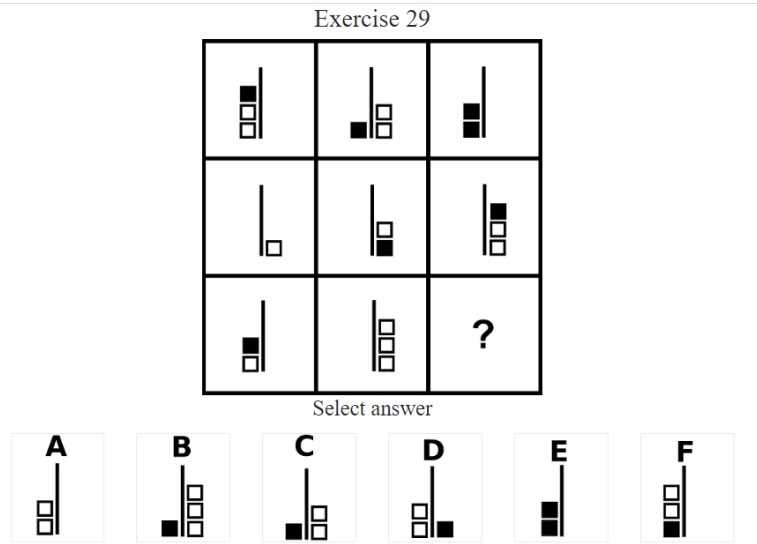
A high cognitive score often reflects advanced problem-solving abilities, quick comprehension, and exceptional reasoning skills. People who score highly on these evaluations are typically able to think abstractly and process complex information with ease. However, it is important to remember that a high score does not necessarily guarantee success in every area of life, as intelligence is just one aspect of a person’s overall abilities.
A score above a certain threshold is commonly regarded as indicative of higher-than-average intelligence. While the exact cut-off point can vary depending on the evaluation scale, a score in the higher ranges often places an individual among the top percentiles of the general population.
Here are some characteristics often associated with high cognitive scores:
- Exceptional problem-solving skills: The ability to quickly identify patterns, draw logical conclusions, and apply knowledge to new situations.
- Advanced reasoning: A tendency to approach challenges from multiple perspectives and think abstractly rather than simply following conventional approaches.
- Fast learning ability: A high rate of understanding and mastering new concepts and tasks.
- Strong verbal and mathematical aptitude: The ability to handle complex language-based and numerical tasks with ease.
While a high cognitive score is an indicator of intellectual potential, it’s important to recognize that intelligence is multifaceted, and other factors like creativity, emotional intelligence, and social skills also play a significant role in achieving success and personal growth.
Understanding Standard Deviation in IQ
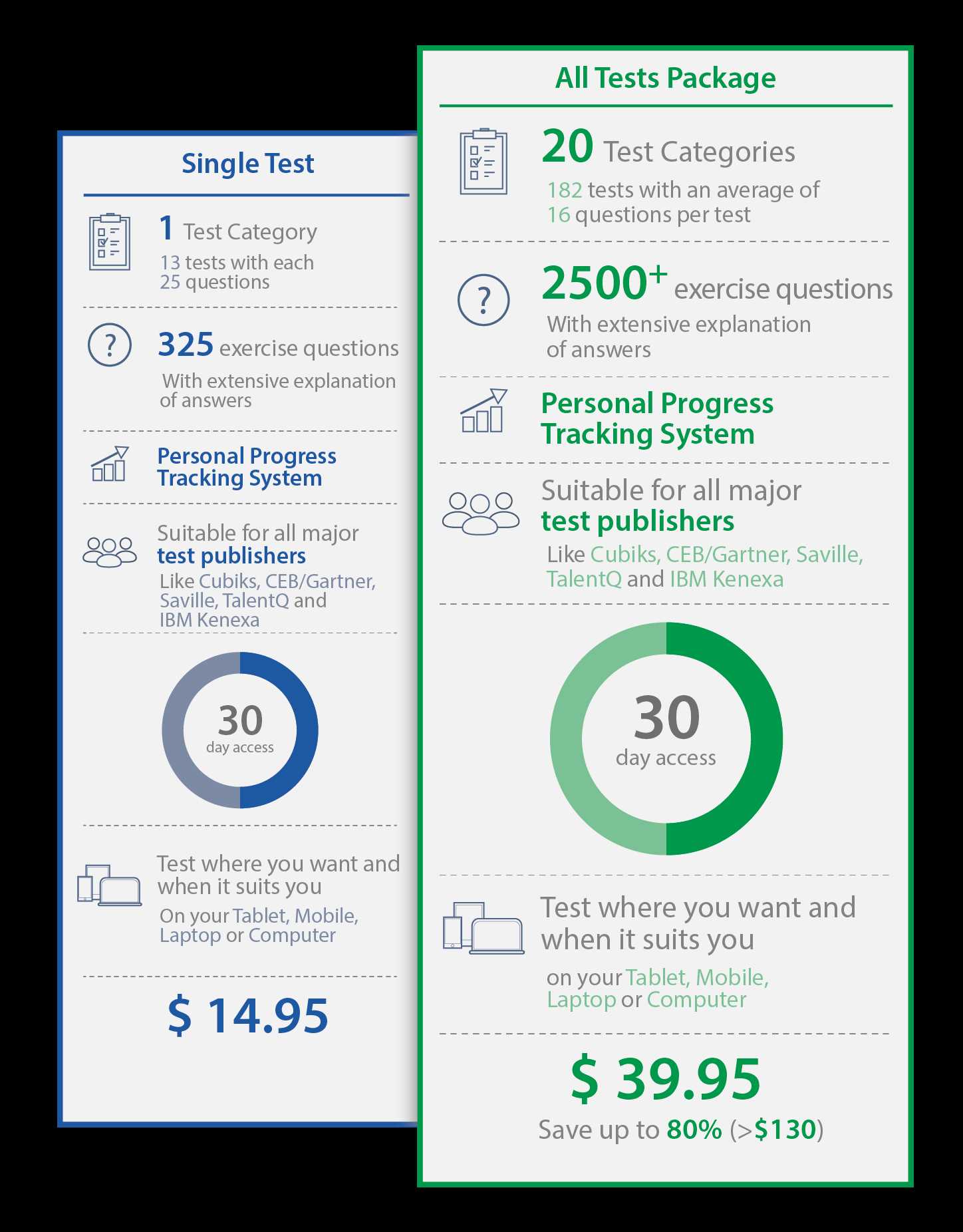
In cognitive evaluations, the concept of standard deviation plays a crucial role in understanding the spread of scores within a population. It helps to determine how much individual scores differ from the average score, providing a clearer picture of where a person stands in comparison to others. Standard deviation is used to quantify the amount of variation or dispersion in the results, and it is essential for interpreting how typical or unusual a particular score might be.
How Standard Deviation Affects Scores
The standard deviation essentially measures the extent to which individual scores deviate from the mean score of the population. A smaller standard deviation indicates that most scores are clustered around the average, while a larger standard deviation suggests greater variation among scores. In most evaluations, a standard deviation of 15 points is used, meaning that most individuals will score within 15 points above or below the average of 100.
Interpreting IQ Scores with Standard Deviation
For example, if someone has a score of 130, which is 2 standard deviations above the average, this places them in a higher percentile compared to the general population. On the other hand, a score of 70, which is 2 standard deviations below the average, would place an individual in a lower percentile. Understanding this helps provide context to the score, illustrating not only the raw number but also its relative position within the broader distribution of scores.
Why Practice Can Improve Results
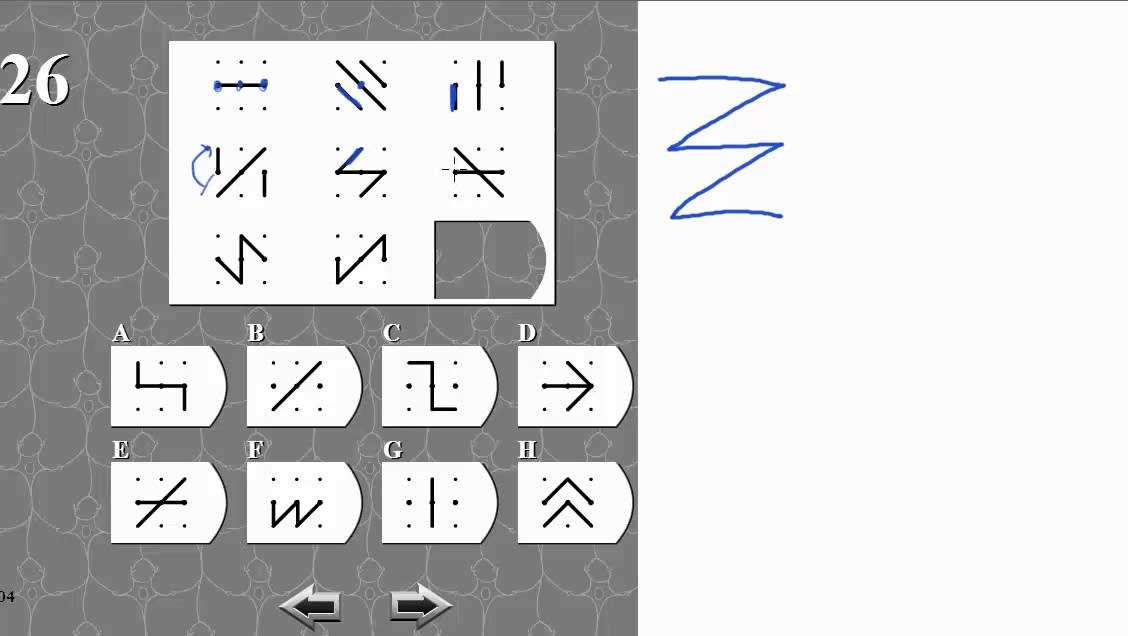
Repeated practice can significantly enhance cognitive performance and improve the ability to solve complex problems. By regularly engaging with various exercises that challenge reasoning, pattern recognition, and problem-solving abilities, individuals can sharpen their mental agility and boost their efficiency in tackling difficult tasks. This kind of preparation helps to familiarize individuals with the types of questions they might face, making it easier to quickly identify the correct solutions.
Consistent practice not only strengthens cognitive pathways but also helps to manage the pressure of time constraints. As individuals become more accustomed to various problem types, they learn to approach challenges with greater confidence and clarity, which in turn improves both speed and accuracy. This increase in mental fluency can lead to higher levels of performance in assessments and related tasks.
Additionally, practice allows individuals to develop strategies for approaching different kinds of problems. Over time, these strategies become more intuitive, allowing for quicker decision-making and reducing the likelihood of errors. The more an individual practices, the more their brain becomes wired to handle similar challenges with greater ease and effectiveness.
How Cultural Bias Affects IQ Assessments
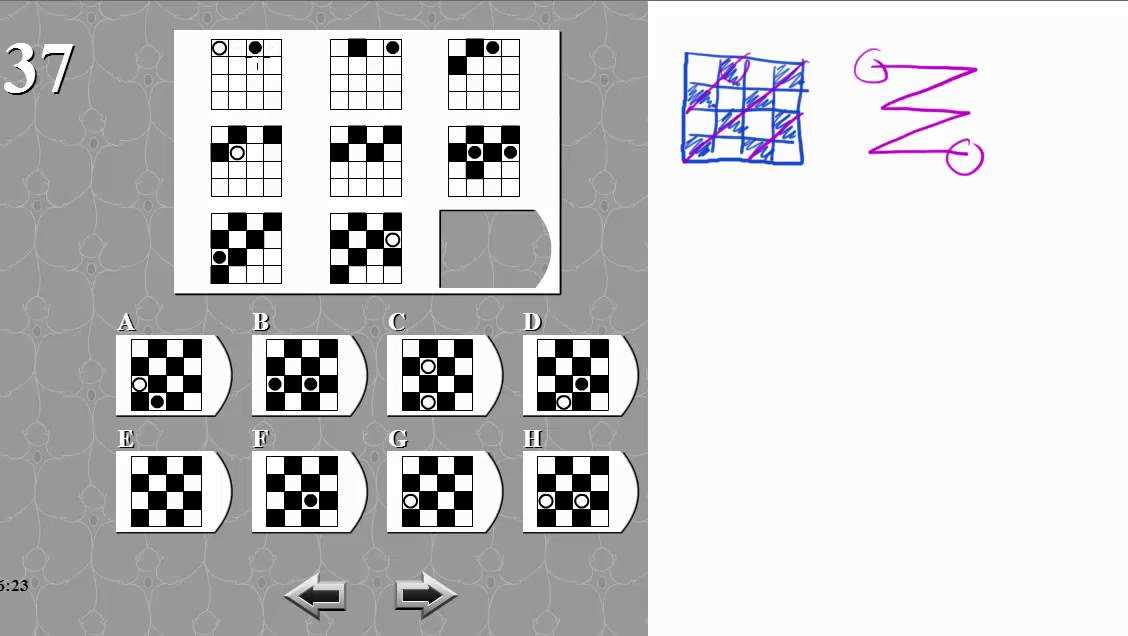
Cultural bias can significantly influence the outcomes of cognitive evaluations, as it affects how individuals from diverse backgrounds interpret and respond to various challenges. These assessments are often designed based on a specific cultural framework, which may unintentionally favor individuals who are familiar with that framework, while disadvantaging those from different cultural or socioeconomic backgrounds. The result is that scores may not always reflect true cognitive ability, but rather an individual’s familiarity with the norms, language, and experiences embedded in the assessment.
The Impact of Language and Context
One of the most common sources of cultural bias is language. When questions or instructions are phrased in a way that assumes a particular cultural context, individuals who are unfamiliar with that context may struggle to understand or respond accurately. This is particularly evident in:
- Vocabulary that is specific to certain regions or dialects
- References to culturally specific practices or knowledge
- Unfamiliar idiomatic expressions
These elements can create barriers for individuals who do not share the same linguistic or cultural background, leading to an inaccurate measurement of their cognitive abilities.
Socioeconomic and Educational Disparities
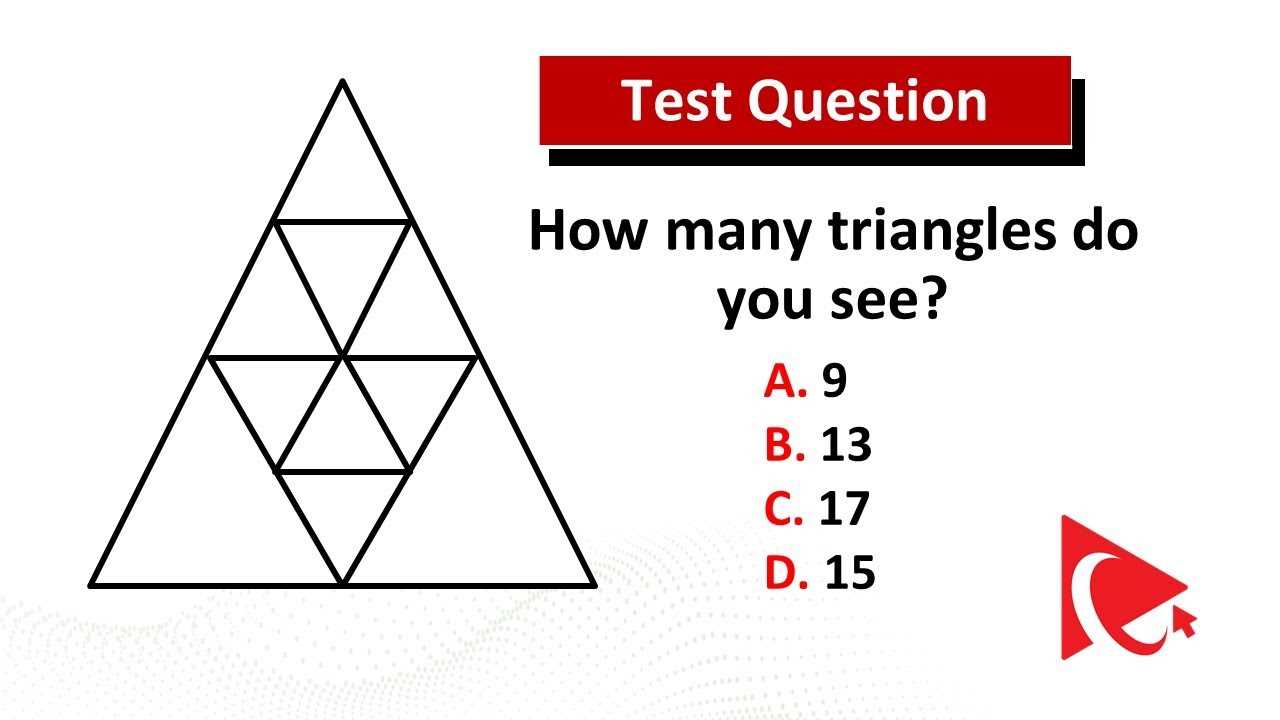
Additionally, the structure of cognitive evaluations may favor those with more access to educational resources or who come from more privileged socioeconomic backgrounds. People with fewer resources may not have had the same exposure to formal education, enrichment activities, or other factors that help individuals perform better on these evaluations. As a result, disparities in access to education can contribute to lower scores, which does not necessarily reflect an individual’s true intellectual potential.
Recognizing and addressing these cultural biases is crucial for creating fairer, more accurate assessments that genuinely reflect cognitive abilities rather than cultural familiarity. It is important to develop tools that minimize these biases and ensure that all individuals, regardless of their background, are assessed equitably.
Limitations of IQ Testing Explained
Cognitive assessments are often used to measure a person’s intellectual abilities, but they have notable limitations that must be considered. While these evaluations provide valuable insights into certain cognitive functions, they do not offer a complete picture of an individual’s mental capacity or potential. There are various factors that can skew results and prevent them from accurately reflecting a person’s true intellectual abilities.
One of the most significant limitations is that these evaluations often focus on specific types of intelligence, such as logical reasoning and problem-solving, while neglecting other forms of intelligence like creativity, emotional intelligence, or practical knowledge. This means that individuals who excel in areas outside of those measured may not be fully represented by the results.
Moreover, cognitive assessments can be influenced by external factors such as stress, test anxiety, fatigue, or even a person’s familiarity with the type of questions being asked. These external conditions can affect how well someone performs, leading to results that do not reflect their usual intellectual capabilities.
| Limitation | Explanation |
|---|---|
| Limited scope of intelligence | Focuses mainly on specific cognitive abilities, ignoring other types of intelligence. |
| External influences | External factors such as anxiety or fatigue can skew results and reduce accuracy. |
| Cultural bias | Assessments may favor individuals from certain cultural or linguistic backgrounds, leading to unequal results. |
| Context dependence | Scores may not reflect real-world abilities or potential in practical settings. |
Recognizing these limitations is essential for interpreting results with a critical perspective. While cognitive evaluations can provide useful data, they should never be the sole measure of a person’s intellectual potential or capabilities. It’s important to consider a more holistic approach to assessing intelligence, one that includes emotional, creative, and practical aspects alongside traditional cognitive abilities.